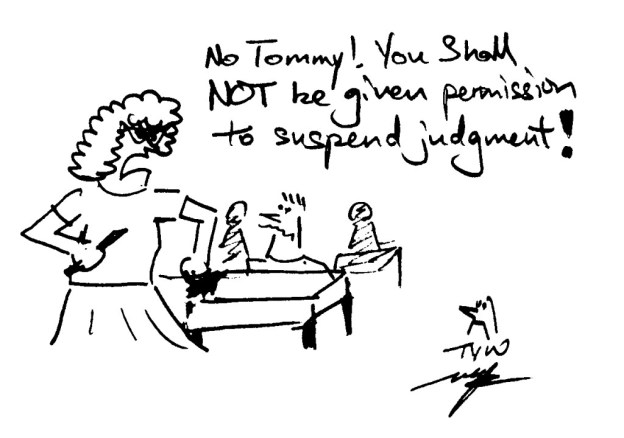This belief is rather easily explained away (though, sadly: not so easily disposed of, for the complacent offenders and “their” n=30 “subjects”!). It stems merely from a lack of correct understanding of differing methodologies, and their correspondences with prima facie differing practices.
Take my words, here. You are reading them. But are you reading me–my intent, my desires; and so on? If not, you are committing what I take to be the essential fallacy of the most literalizing scientists and analytic philosophers, who all fail to appreciate the proper way to arrive at another person’s meaning. For, if one does not understand what something means to the speaker–or, indeed, to any of their possibly-billions of listeners–one will forever be trapped and mired in his, her, or hir own “subjective” (in this case, impoverished as-such) meaning, distinct from and un-legitimized by one’s fellow beings in the world. Indeed: what a “meaning”!
For such a person, inter-subjectivity forever remains a mystery; coherent sociality at all willfully mystifies them, and what is left to mystify one will ultimately block one from becoming the best they can possibly be–whether “for themselves, or others”. (These quotes are necessary: for they hint at the absolute absurdity of the classical I-,-rather-than-thou formulation!)
In short, the one who instinctively dismisses hermeneutic work as “all subjective–and therefore useless” operates with a distinct lack of empathy: of caring for the immeasurable relativity of meaning among their “fellow” beings; of enriching subjectivity, generally; of truly understanding and connecting–and, henceforth, of caring for “him-, “her-, or “hir-self”.
Cling not to the dreaded “to the man!” “fallacy” quite so dearly, my friend–dialogical achievement is necessarily both art and science! Admit to a broader set of fallacies than have been so thoughtlessly inculcated: and tuck away that dirtied monologizing monocle, if only for the mere moment, good madams and sirs–

